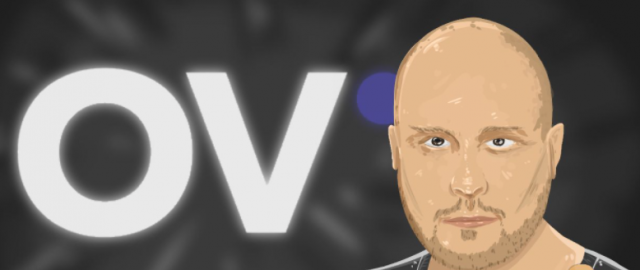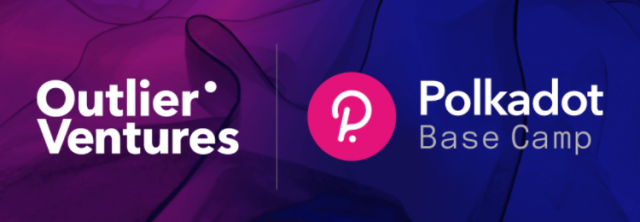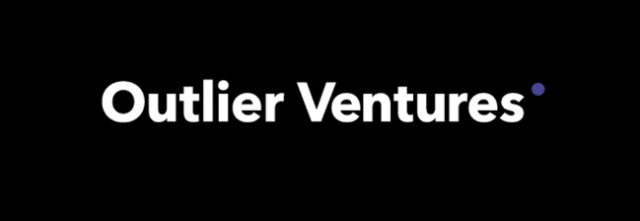On social media- Metaverse talk has reached its zenith. Or has it? Pundits would have us thinking that this is the end of the road for social media networks.
However, as with all things technology, concepts are what determine what the next big thing will be. In the case of social media, it is the concept of the Metaverse.
We had a sit-down with Jamie Burke, the founder, and CEO of Outlier Ventures to talk about this.
While the theory of the “Open Metaverse” might be something that is still new, we are still seeing how ideas rule the world.
So, it might not be the end of the road for “the house that Mark Zuckerberg built“. Here is what Jamie had to say.
Jamie Burke Founder/CEO Outlier Ventures
E-Crypto News:
In a few sentences, what exactly is a Metaverse?
Firstly the Metaverse is singular. There is only one because it is THE meta-verse. But there will be many verses that make it up.
The Metaverse is effectively an interface layer made up of hardware and software that makes the physical and virtual worlds indistinguishable from one another.
E-Crypto News:
Please, can you tell us how Metaverses work?
The common themes in sci-fiction like Snowcrash and Ready Player One have been that it is a singular unified economic system that enjoys supremacy to, and independence from, nation-states and fiat-based systems.
And it was also often described as a dystopic process of capture and control by a single corporation.
And I think if we look at how The Web, Big Tech, Gaming, and now spatial computing is playing out right this vision seems to hold pretty well.
Ultimately, for us there are a couple of pathways for the Metaverse; it will either monopolize entirely the global economy as a singular platform much like Google has done with Search or even a duopoly as seen with gaming engines or it will be the thing that connects up all a rich ecosystem of many verses and makes them interoperable. Obviously, the former is the Oasis in dystopia in Ready Player One and later the one we all hope to emerge.
E-Crypto News:
Please, can you explain to us the central idea behind the Open Metaverse idea?
The Open Metaverse is the pathway we all want to see happen. One based on a shared and open operating system, hence why we call it The Open Metaverse OS, building upon the success of blockchains and decentralized protocols, emerging in The Web 3 Stack.
Underpinned by programmable digital assets like crypto-currencies and non-fungible tokens which serve as the atomic unit of account and freely transferable representations of digital, and eventually also, a physical value.
By open, I mean the principles of Web 3 based on user-centricity, decentralization, and sovereignty of identity, data, and wealth. A requirement in an open metaverse is that the code is primarily open-source, the assets are fully transferable (meaning you can buy, sell, and exchange them outside of a given platform they are created on), and the associated data isn’t proprietary but rather user-controlled, and innovation is permissionless.
In an open metaverse, the users—not platforms and shareholders like Facebook or Epic Games, who own Fortnite, are in control, and its easy for any user to enter and freely exit any platform with any value they may have bought or created there.
E-Crypto News:
Now that social media companies like Facebook and co are looking into the Metaverse concept, what are we to expect?
Well, that’s a great question. Zuck referenced the need for an open metaverse and tipped his hat that crypto and decentralisation could be one way to achieve that but then if you look at Oculus their VR play almost everything about it is closed and an extension of the current extractivie business model that’s made them so wealthy.
Now that’s pretty scary because a VR set can record your retinal response to visual stimuli going well beyond what you knowingly like or comment on and they also scan the floorplan to your home and the objects in it.
Are they going to forgo that data and put the user in control of permissioning? We also know that rather than adopt open decentralised crypto currency they have tried to launch their own more controlled currency with Libra.
So look at what they do, not what they say would be a good mantra.
If you compare this to Tim Sweeny CEO at Epic Games, and Unreal gaming engine, who has the most to gain from maintaining a duopoly with Unity and keeping gaming franchises like Fortnite entirely closed he is actively talking about how it would be a disaster for one or two companies to monopolise the Metaverse.
Likely haunted by Ready Player One where the corporation outlives its benevolent creator.
They have raised $1bn specifically to invest in an Open Metaverse and we know firsthand they are providing grants and support for projects in our portfolio like Auroborous (Digital Fashion) and Crucible Network (Portable Identity).
E-Crypto News:
Please, can you tell us more about what the future holds for social interaction?
From social media platforms like TikTok to games like Fortnite and the rise in digital assets in NFTs that live on blockchains, it’s clear that we’re already living in a society that’s evolved into something predominantly virtual.
If we look at the effect of COVID-19 we spend more time working, playing, and socializing virtually and people are beginning to question how they get something back from the time and value they are creating for these platforms.
And fundamentally questioning the ‘free to use/play business models that have dominated the last decade.
If we think of all the forms of digital value born out of these social interactions The Open Metaverse OS allows it to be commodified into tradeable digital assets which in turn can become collateral that can increasingly be borrowed and lent against in what we call DeFi, or decentralized finance on blockchains like Ethereum.
But as I have stressed in my thesis, what’s critical is that we can’t think of this virtual world (and the Metaverse) as something of the future, because we’re already living in it.
That’s why we need to address some fundamental design flaws of our existing digital interactions to fix what’s broken about the Web today on a much larger scale.
E-Crypto News:
What are the current leading concepts in the Metaverse community?
Well most of the general media and publics attention is on the user experience.
How immersive is it and advances in hardware that make it more financially accessible but also like with say AR glasses make it easier to blend layers of virtual experiences over the top of day to day life in a highly mobile, untethered manner.
However, in Web 3 the focus is much more about building out these primitives and the technical infrastructure.
E-Crypto News:
What is Outlier Ventures all about?
Outlier Ventures is a venture capital firm that focuses on pre-seed and seed investments in blockchain companies with the ultimate goal of accelerating the open metaverse.
E-Crypto News:
What are your products and services, and how do they help solve humanity’s problems?
Our products and services include our startup accelerator program, Basecamp, which is the world’s leading Open Metaverse startup accelerator, where we offer programs that mentor, provide investor networks, funding, and equity programs.
We also have a Polkadot Basecamp, which backs the world’s best teams leveraging Polkadot’s interoperability for DeFi, NFTs, gaming, and more.
As well as our Filecoin Basecamp, which empowers innovators developing a decentralised web.
Finally, we’re doing some amazing things with Diffusion, which is an event and podcast series all about the metaverse and those helping to build the future of a decentralized internet and other advancements on the blockchain.
E-Crypto News:
How will the emergence of new technologies aid the development of Metaverses?
In a future of the Metaverse that I’d like to see, the Metaverse will be an open one, that’s completely decentralized and is an extension of advancements in Web3.
This will require the application of Web3 principles that are based around user-centricity, decentralisation, and sovereignty—code must be open source, the assets are portabile, and the data platform isn’t proprietary but rather user-controlled.
As far as technologies, I outline in my Open Metaverse Thesis the different agents of The Web3 Toolbox, which spans DeFi (units of value, aggregators, Data marketplaces), NFTs (minting houses, marketplaces, new standards of metadata), decentralized governance (DAO frameworks, staking, multi-signature wallets), decentralized cloud series, and more. While this is just a small collection of the technology that will power and Open Metaverse, collectively, it’s an evolving collection of highly composable technologies that will increasingly, but selectively, be used to make aspects of the Metaverse progressively more open.
E-Crypto News:
As the world emerges from the COVID-19 pandemic, what role will Metaverses play in resurrecting the American and global economy?
We’re already living in some aspect of the metaverse—and it’s proven how efficient things can be via virtual interaction, commerce, and more. What we need now is even better efficiency and less reliance on Web2 protocols which aren’t as seamless, and in some cases profitable, than what’s capable in Web3.
That’s why I’m incredibly excited about helping build the future of startups in the Metaverse which will help improve finance, art & culture, governance, and the trading of digital and physical goods that are born out of virtual communities.
If you look at gaming platforms like Fortnite, which are profitable but require massive amounts of time and investment to bring to life, advancements in an Open Metaverse can enable countless other people to build gaming communities like Fortnite with less overhead cost.
This is something that could massively benefit the creator economy.
The NFT market is also a sector that would experience better efficiencies allowing more and more creators to profit and grow.
E-Crypto News:
How will open Metaverses be profitable? How will they operate in terms of business models?
We’ve already seen incredible profit across virtual spaces and communities—from NFT marketplaces to gaming communities to many other decentralized communities that run on the blockchain via cryptocurrency.
The question is more about who exactly profits most from metaverses and how that profit is either nurtured or limited/controlled.
This is something I get deeper into in my thesis, but at a higher level, The Open Metaverse
will allow innovators (game developers, artists, creators) to experiment in an open and permissionless experiment with its underlying economics.
We discuss how this can create entirely new wealth in a purely virtual sense but which actually would provide people an income that’s not limited to closed, governed communities.
E-Crypto News:
What role do you think generation Z will play in the evolution of Metaverses?
It’s already happening, and will continue to happen. Gen Z is growing up in a way where virtual and offline experiences are often synonymous—their reality is fueled and nurtured by qualities inherent to the Metaverse.
As time goes on, Gen Z will continue to expand how people can connect and create content together without ever meeting face to face—from gaming to social media.
E-Crypto News:
How can we match concepts such as Metaverses with physical reality? What will be the effects of such technologies on mental health? What checks and balances need to be put in place to ensure people don’t slide into delusions and other forms of false reality?
I believe this is already happening: a company like Amazon is a hybrid of a virtual and physical reality, as it is essentially a virtual mall with a network of physical fulfillment centers moving around physical goods, which include a growing number of virtual goods and services like eBooks and streaming services.
In gaming communities, I discuss in my thesis how in an Open Metaverse you’d have the ability to borrow against your own virtual wealth to buy physical assets, which would bridge the gap between our virtual identities and how we transfer wealth to a physical space.
As far as mental health, our transition into virtual communities is something that is already happening and will continue to happen—what’s key here is to ensure that people have a proper voice.
E-Crypto News:
What are the benefits of deploying Metaverse projects
Like anything else, it’s all about how you approach your projects. Web 3 consists of several principles, protocols and standards which could be said to form a stack that will inform and can and is being leveraged by the entrepreneurs and architects.
Utilizing projects that include cryptocurrencies like Bitcon serve as a hedge to deflation. DeFi projects allow borrowing and lending without the need for banks, as well as more sophisticated instruments such as options and decentralized exchanges, and some entirely novel structures, such as automated market makers.
NFTs, which could apply to virtual in-game skins, are easier to sell than physical goods, and represent how any activity in the open metaverse can be gamified and rewarded with NFTs, which can in turn have value on the open market.
E-Crypto News:
What are the downsides of Metaverses and their underlying technologies?
To me, the downside of a metaverse and its underlying technologies is that it would be a closed metaverse that’s merely an extension of Web2 and virtual communities that have been born out of it.
A closed metaverse is one of governance, a lack of sovereignty of identity, data, and wealth, and a closed environment that not everyone can build on.
The risk and downside here would be merely replicating or deepening what is broken about the Web today (and society) on a much larger scale.
E-Crypto News:
If you had three wishes and a Genie that could make them come true, what would they be for the Open Metaverse community?
-
Total decentralization
-
Sovereignty of identity, data and wealth.
-
An open and permissionless environment











